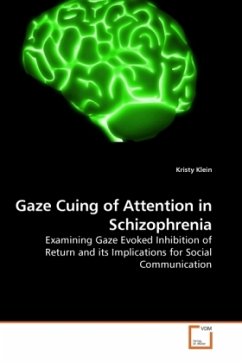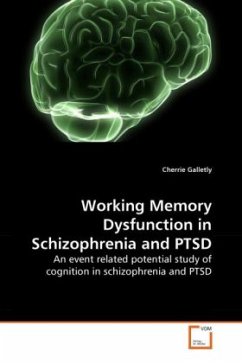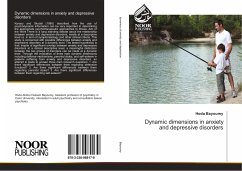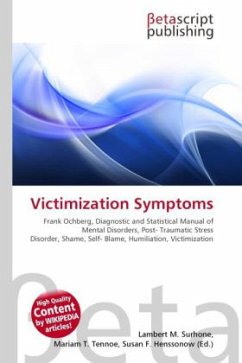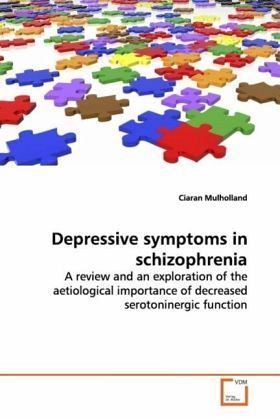
Depressive symptoms in schizophrenia
A review and an exploration of the aetiological importance of decreased serotoninergic function
Versandkostenfrei!
Versandfertig in 6-10 Tagen
52,99 €
inkl. MwSt.

PAYBACK Punkte
26 °P sammeln!
Depressive symptoms are common in individuals with schizophrenia. In this book the literature regarding the aetiology of such symptoms is reviewed and it is postulated that they may sometimes result from decreased serotoninergic function. Three studies were carried out to test this hypothesis. In the first patients with chronic schizophrenia were assessed for the presence of depressive symptoms. In the second patients with chronic schizophrenia and depressive symptoms were entered into a randomised controlled trial of sertraline, a SSRI antidepressant. In a third study patients with stable chr...
Depressive symptoms are common in individuals with
schizophrenia. In this book the literature
regarding the aetiology of such symptoms is reviewed
and it is postulated that they may sometimes result
from decreased serotoninergic function. Three
studies were carried out to test this hypothesis. In
the first patients with chronic schizophrenia were
assessed for the presence of depressive symptoms.
In the second patients with chronic schizophrenia
and depressive symptoms were entered into a
randomised controlled trial of sertraline, a SSRI
antidepressant. In a third study patients with
stable chronic schizophrenia were tryptophan-
depleted in a double-blind experiment. The findings
suggest that decreased serotoninergic function is an
important aetiological factor in the production of
depressive symptoms in schizophrenia and
consequently that SSRI antidepressants may be a
useful adjunctive treatment for individuals with
schizophrenia and depressive symptoms. This book
will be useful both for schizophrenia researchers
and for health professionals seeking to deal with
this difficult clinical problem.
schizophrenia. In this book the literature
regarding the aetiology of such symptoms is reviewed
and it is postulated that they may sometimes result
from decreased serotoninergic function. Three
studies were carried out to test this hypothesis. In
the first patients with chronic schizophrenia were
assessed for the presence of depressive symptoms.
In the second patients with chronic schizophrenia
and depressive symptoms were entered into a
randomised controlled trial of sertraline, a SSRI
antidepressant. In a third study patients with
stable chronic schizophrenia were tryptophan-
depleted in a double-blind experiment. The findings
suggest that decreased serotoninergic function is an
important aetiological factor in the production of
depressive symptoms in schizophrenia and
consequently that SSRI antidepressants may be a
useful adjunctive treatment for individuals with
schizophrenia and depressive symptoms. This book
will be useful both for schizophrenia researchers
and for health professionals seeking to deal with
this difficult clinical problem.





